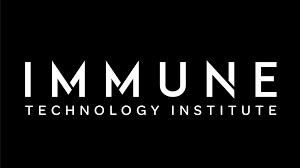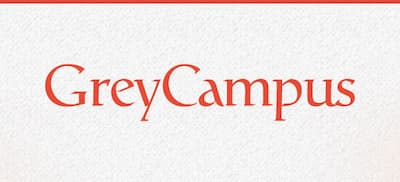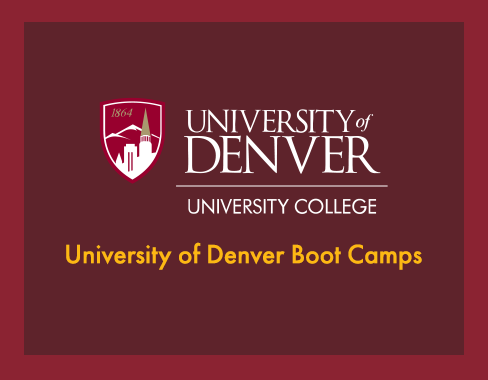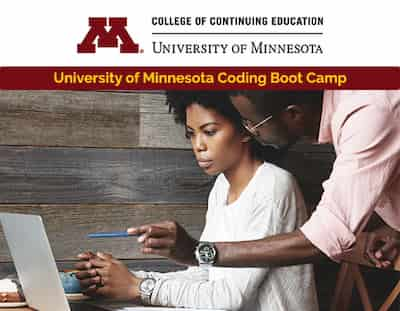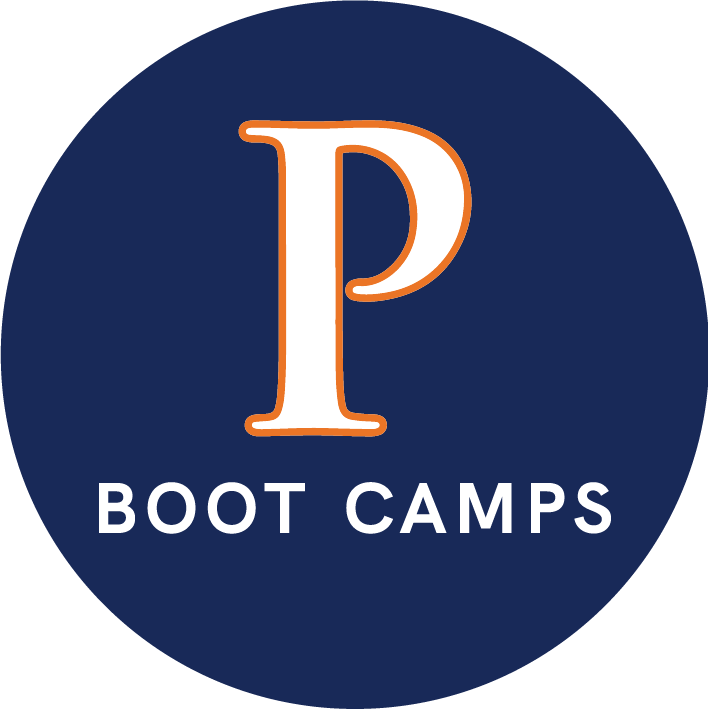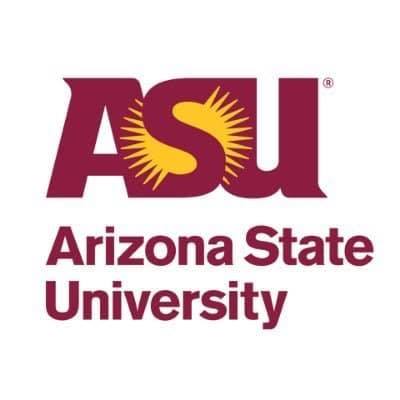How to Learn Blockchain - 39 Bootcamps to Get You Started
What You Need to Know About Blockchain
Blockchain has become a recognizable term, but it can still be difficult to understand or explain. At its essence, blockchain is the ultimate ledger, a way to virtually record data that is considered impossible to alter, hack, or destroy. It is decentralized and time stamped, which makes it an excellent way to establish provenance (an origin and history) of digital assets. Blockchain technology can be used in several careers, including software engineering, web development, and programming. If blockchain is something you'd like to learn more about, look at our comprehensive list below for bootcamps that cover the theory, principles, and practices of blockchain.
What is Blockchain?
Blockchain is a continuously growing digital ledger of transactions that is sent, updated, and stored on a network of systems. The nature of blockchain technology is designed to prevent the ability to hack, change, or cheat the data. Each record or transaction is a block, and each succeeding block contains a cryptographic hash of the previous block. Blockchain is effective in that to alter a block after its been recorded, you must alter all the blocks, which requires a network majority consensus.
What is Blockchain used for?
Blockchain was originally used for cryptocurrency, but the technology is beginning to see use in a wide range of industries, including media distribution, food distribution, healthcare, the postal service, real estate, peer-to-peer transactions, government, and real estate, and its technology is continuously being looked at for more uses. Blockchain is used to eliminate a central authority or middleman, reduce risk, eliminate fees, and it gives the ability to trace a chain of transactions or products back to the source easily.
Why learn Blockchain?
Industries are learning about blockchain, how it can benefit them, and where to use it. Blockchain infrastructures help with everything from data security and digital identity to improving confidence between parties in the value chain. The rising popularity opens opportunities for people who understand the technology and can create it. In 2018, there was a 517% increase for developers with blockchain skills1. Blockchain developers are paid well, with an average salary range of around $93,500-$127,207.
Who should learn Blockchain?
Developers or software engineers entering any of the industries beginning to use blockchain, such as government, media distribution, and various finance sectors, could benefit from learning the technology.
Learn blockchain at a bootcamp
Bootcamps offer an education in blockchain using different formats. Some programs include blockchain as part of a broader curriculum, like Hack Reactor's remote coding bootcamp, while others focus solely on blockchain, like Byte Academy's Blockchain Immersive. Higher education institutes like eCornell and the University of Washington also offer blockchain-related certificate courses and bootcamps. If you want to see if you're interested in blockchain before commiting to a full-time bootcamp, there are many short-form courses available online as well. Begin your search for bootcamps or programs with blockchain curriculum using our list below.
Comprehensive List of Blockchain Bootcamps
IMMUNE Technology Institute offers bootcamps such as Data Science Developer, Advanced Cybersecurity, Blockchain in Legal, Secure Coding, and Voice Tech.
GreyCampus transforms careers through skills and certification training. We are a leading provider of training for working professionals in the areas of Project Management, Big Data, Data Science, Service Management and Quality Management. GreyCampus offers Bootcamp (instructor-led online) and Non-Bootcamp (online self-learning ) courses. The growing suite of accredited courses is constantly upgraded to address the career enhancement goals of working professionals.
01 Founders is a free-to-access coding school with a job guarantee. It's a teacherless, collaborative, high-quality software engineering course - based on the established 01 Edu platform. You'll work with fellow learners on group projects, and over two years of study and two years of work, you’ll develop full-stack developer skills. In other words, you’ll graduate ready for employment, with mid-level, rather than entry-level coding ability.
University of Denver Boot Camps are 12-week, full-time, or 24-week, part-time web development, UX/UI, data analytics, financial technology, and cybersecurity courses, and 18-week, part-time digital marketing, and product management courses. The full stack curriculum includes HTML, CSS, JavaScript, jQuery, Bootstrap, Express.js, Node.js, databases, MongoDB, MySQL, and Git. The UX/UI program provides hands-on training in user-centric design research, design thinking, visual prototyping and wireframing, interface design, storyboarding, visual design theory, web prototyping with HTML5 and CSS,...
University of Miami (UM) Boot Camps offer 24-week, part-time web development, data analytics, and financial technology courses. The full stack curriculum includes HTML, CSS, JavaScript, jQuery, Bootstrap, Express.js, Node.js, databases, MongoDB, MySQL, and Git. The data curriculum includes programming in Excel, Python, R programming, JavaScript charting, HTML/CSS, API interactions, SQL, Tableau, fundamental statistics, machine learning, and more. Enjoy close collaboration with other professionals while receiving hands-on experience. The fintech curriculum covers Python programming, financial libraries,...
Start Your Career with a Top-Rated Bootcamp
University of Minnesota Boot Camps offer a 12-week, full-time and 24-week, part-time web development courses, 24-week, part-time data analytics, cybersecurity, UX/UI, and financial technology courses, and an 18-week, part-time digital marketing course. The full stack curriculum includes HTML, CSS, JavaScript, jQuery, Bootstrap, Express.js, Node.js, databases, MongoDB, MySQL, and Git. The data curriculum includes programming in Excel, Python, R programming, JavaScript charting, HTML/CSS, API interactions, SQL, Tableau, fundamental statistics, machine learning, and more. Enjoy close collaboration...
Pepperdine Graziadio Boot Camps offer 24-week, part-time courses in financial technology and 18-week, part-time courses in Digital Marketing online. Applicants do not need programming experience to enroll, but once admitted, all learners will complete a pre-course tutorial. The Pepperdine Graziadio Boot Camps are designed for working professionals and learners who are actively pursuing a career change or advancement or looking to gain a new skill set. The fintech curriculum covers Python programming, financial libraries, machine...
Arizona State University (ASU) Bootcamps offer 24-week, part-time courses in cybersecurity or financial technology and 18-week, part-time courses in Digital Marketing. The cybersecurity curriculum offers hands-on training in networking, systems, web technologies, databases and defensive and offensive cybersecurity. The fintech curriculum covers Python programming, financial libraries, machine learning algorithms, Ethereum, blockchain and more. The digital marketing curriculum covers highly relevant skills, training you in marketing strategy fundamentals, optimizing campaigns and websites, digital advertising and automation...
Qwasar Silicon Valley offers training programs that are truly designed for the 21st century. The world has changed, access to knowledge has changed, and the workplace today is about skills, collaboration, problem-solving, and creativity. Hard, technical skills and soft skills are not learned in a lecture, online video, or by knowledge transfer. You need to experience it, to learn by doing, and that is the core of what we do at Qwasar. Learning new skills...
Best Bootcamps received an average 3.45 of 5 based on 3966 reviews.
References
- State of Software Engineers #hottest jobs. [online] Available at: https://hired.com/state-of-software-engineers#hottest-jobs [Accessed 30 July 2020]

